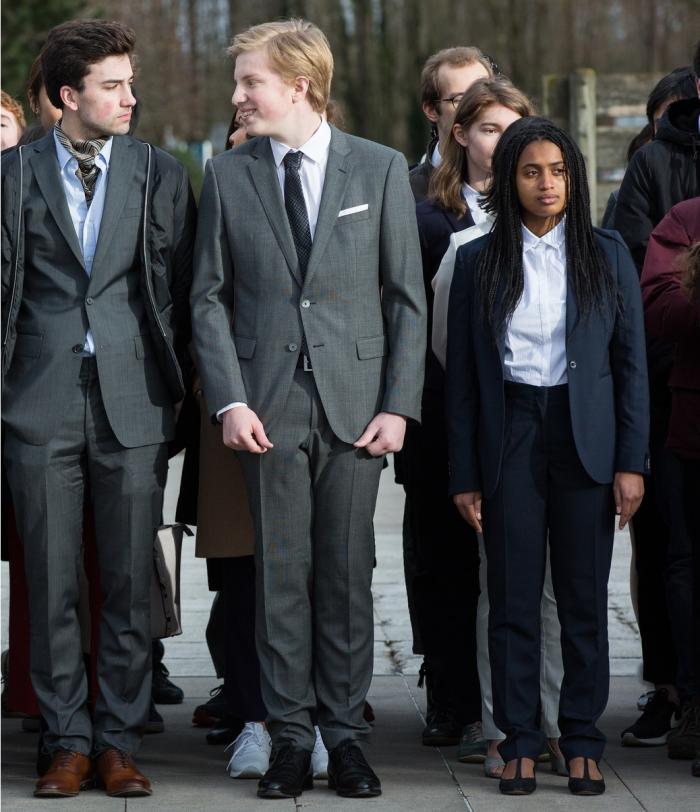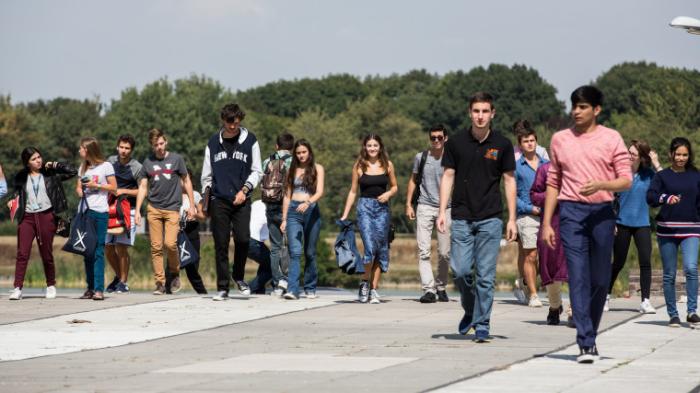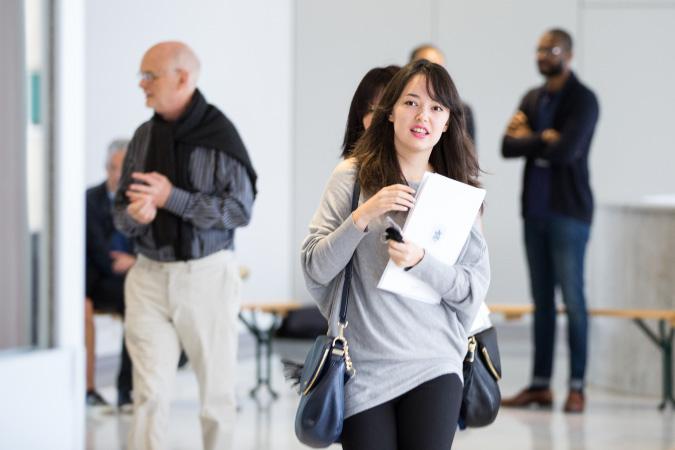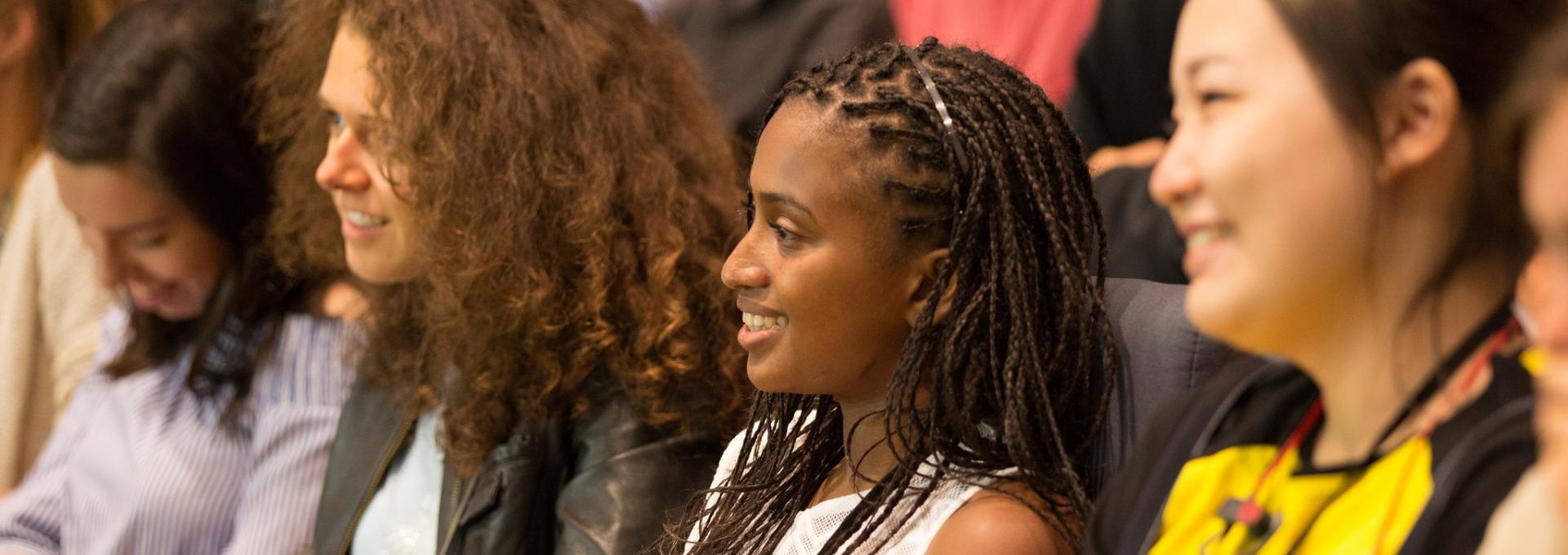L'École polytechnique, c'est plus que du travail - Découvrez le quotidien de nos étudiants en Bachelor.
[Article disponible uniquement en anglais] We know that applications to university can be a stressful undertaking for candidates and that you have a lot of questions. The Bachelor Admissions Team is here to help you out throughout the whole application process, but we know that sometimes it’s best to let students speak for themselves. Students from the first class of École Polytechnique’s Bachelor Program would like to share some tips to help you during the application process. Last year, they were going through the same process as you, and they wish to share their insight. You will find out their testimonies and tips on our website. Go and have a look! We wish you all the best for your application.
We thank Marco, Jules, Guillaume, Phoebe, Jean-Tiago, Tristan, Adrien, Ghjulia, Camille, Agathe, Raymond, Miha, Raissa, Assia and Edison for their tips and testimonies
And what should I do if I do not have the answers to the questions asked?
“You should expect a part about your personality and what you have done so far (academically and out of school). You'll probably be asked about scientific culture. My advice here is: don't try to learn every story of every scientist. Build yourself a scientific culture that has depth. Watch a video about the history of maths and one about physics to get a global point of view, and then choose a few scientists you want to know more about. I personally watched many videos from the YouTube channel Numberphile to get ready. I decided to focus on Riemann, Godel and Fermat and I got to talk about Riemann during my oral. I knew a lot about him and I believe it was appreciated by my interlocutor.”
“The real core of the oral interview is actually about demonstrating your thought patterns, not how much you have formally studied. You will be asked something you don’t know how to do, but what they are looking for is your approach, not your answer. Try to stay calm, think out loud, and show that you are determined and flexible in your problem solving.”
“The examiners aren't there to trick you, just to assess your level. Not only to see if you have the right answer but also to understand how you react when faced with a problem. Don't panic (although I know it’s hard not to), take your time and if something is unclear just ask again. Also they may help you with the questions and that’s okay!”
“Expect that you will not be able to answer all the questions even if you are used to be the best, and that’s OK.”
“If you find yourself in the sticky situation of not having the answer to a question, don't panic. You are not only assessed on your capacity of getting the right answer but also on your capacity of searching for a difficult answer, even if your result is non-conclusive. Not finding an answer does not mean that you have failed the interview as long as you show the examiner that you are capable of reasoning and perseverance.”
“First, you will be asked questions about your motivation and your interest for the Bachelor Program. The interviewer might also ask for your opinion on current scientific issues or interrogate you on general science questions. After that, you will be given some math problems to solve. The first questions I had were relatively straightforward (curve sketching, limit computation, differentiation, etc.), then the interviewer gave me a more challenging problem that required a lot of different steps to be solved. If you do not have the answers to some of the questions, don't hesitate to share your thoughts with the interviewer and tell them how you tried to approach the problem and why you think you are not finding the answer or ask for some more time to figure it out!”


“In order to prepare for the interview, I advise you to divide your academic tasks into three parts: 1) review of the knowledge you have learned in class, 2) broadening of your scientific culture by researching about landmark figures and concepts and about current breakthroughs, 3) learning the English mathematic vocabulary. If you feel lost or unsure about where to start when preparing for the interview, I believe that dividing your work in this way is an effective way to begin your preparation process.”
“I tried solving problems that were given in interviews at other major international institutions (Sets of problems from British universities can be found online). I also worked on problems from the SAT subject tests math level II. These are more involved exercises than the ones from the SAT I and they are in English!”
“Considering the nature of the questions I was asked, I recommend working on exercises involving some reasoning (not just basic lesson applications). Obviously fully mastering what you've learnt at school is essential. And don't forget to go through your basics in geometry!”
“I prepared it by watching tip videos online. Also, I read a bit of the history of l'X [École Polytechnique’s nickname]. I also read about the latest scientific discoveries to have some material to talk about if necessary.”
“Before the interview, I revised some areas of mathematics which I was not really sure about. But I think I did most of my preparation through my years of schooling and by being interested enough in science to just remember the important parts.”
“The English used during the interview isn't a very formal one. You just need to learn the translation of basics mathematical tools, along with some science vocabulary. There are French-English vocabulary glossaries in mathematics and physics on the Bachelor's website.”
“I had never done any science in English before. I learnt math and physics vocabulary during holidays, and did a lot of exercises in English to learn how to build a clean proof. I also translated some of my courses to test myself. If you know anyone who speaks English, make a mock interview with them to be more comfortable on the day of your oral.”
“To make you feel more confident about your language level while doing maths in English I would advise doing some exercises in English. For instance, I did some SAT exercises though I do not think this is essential for the interview. Just make sure you master more maths specific vocabulary. And if you did not do that already, try to watch as many science-related videos in English on YouTube. This will help you not only to improve your language but also for the questions on general scientific knowledge. Finally, do mock interviews with your English teacher! ”
“Be confident about your skills: if you have been selected to take the interview, it means that the level of English you have shown in your application is good enough! The most important thing is to learn as much math related vocabulary as possible.”

